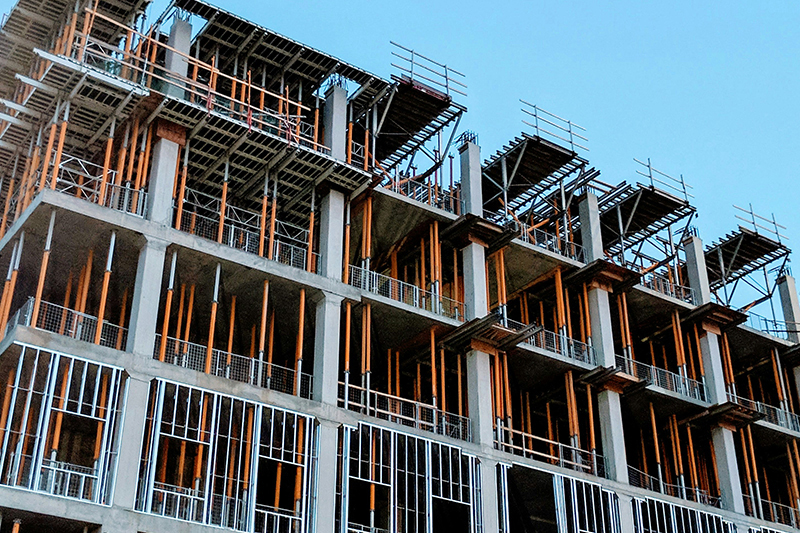Challenges in Singapore’s Construction Sector That Are Not Found Elsewhere
Just like any other industrial construction sector, the construction industry in Singapore has some unique problems which are not found in other industries. To begin with, heavy local compliance regulations and standards that govern the country pose a tough challenge for firms in the construction industry. In fact, the construction firms are required to frequently upgrade their documents and make sure that all the requirements of the law are discharged. On top of that, another complexity is introduced by the changing material cost, which often goes up and down. On one hand, it shows budgeting problems where organizations should innovate continuously on the other hand, it challenges the organization’s profitability. Additional to this, the industry is well known for the high turnover rate in the labor force, which makes the task of plainly having long service payment and managing IT professionals very difficult.
In contrast, issues like payroll optimization and team harmony are common in both the construction and other sectors. These challenges actually require some schemas of resource management that people do not think to be in a particular area but are helpful to everyone. Clearly, firms in almost all sectors know that bad scheduling and inadequate evaluations will impede a team’s effectiveness. In Singapore, this two-layered blend of industry-oriented and typical challenges necessitates a different approach to HR management.

Merits of a Properly Executed HCM System
A well-designed HCM system has the potential to revolutionize any firm dealing with such intricate challenges in Singapore. The most important thing, a powerful human resource management software guarantees precise payroll administration. Obviously, HR systems that accurately process payroll operations are the most valuable tools for organizations that find it hard to calculate the financial effect of issues like employee turnover and recruitment. Moreover, it divides the intelligent rostering that operates both maximal team efficiency and efficient workforce management at the same time, which is a core issue in dealing with uncertain project deadlines and labor-force availability in the construction sector.
In addition, an effective Human Resource Management System (HRMS) incorporates adjustable performance evaluations. The characteristic is especially important for sectors like construction, where projects and time limits can shift often, calling for continuous employee evaluation. Furthermore, the HRMSs help to pay long service bonuses in time, giving the loyal employees the financial benefits of their long services and efforts well on time. The CFD contributions are as well processed through these systems which automatically reduce the administrative workload.
Being so dynamic, the modern HRMS software addresses sector-specific needs as well as universal HR dilemmas, making it a must for the Singapore construction scene.
HCM Implementation Guidelines
Success in implementing an HCM system requires meticulous planning and execution of the strategy. First of all, bring in all the necessary stakeholders right from the beginning to discuss their specific needs and challenges thus ensuring that the system does align with the firm objectives. Moreover, you are to organize targeted training sessions for the employees that are aimed at maximizing the use of the system, thus enabling a smooth transition with the least disruption. Finally, but perhaps the most important step is keeping a regular check on the HRIS (Human Resource Information System) to ensure it remains compliant with the changing regulations and meets the evolving workforce needs through regular updates and monitoring.
Personal Features of Multiable aiM18
Multiable aiM18 distinguishes itself in the construction segment of Singapore with several features:
1. Rule-Based Workflow Engine: Automates regular tasks of HR thus improving efficiency.
2. A.I. Ready Framework: Provides predictive analytics for setups of adaptive rostering and workforce planning.
3. Flexible Payroll Formula: More than 90% of payroll related customization is eliminated.
4. Intelligent Roster Planning: Maximizes workforce allocation and ensures compliance.
5. Unlimited Appraisal Forms: The system permits departments to set their own evaluation criteria when required.
Multiable HCM: Approval and Endorsements
Multiable HCM has acknowledged IRAS and has been certified as a category-grade HR system under the ‘Category of Software Compliance to Controls’ within the Auto-Inclusion Scheme (AIS) for Employment Income. By this endorsement, it adds to its credibility and assurance among the firms in Singapore about its efficacy and the fact that it is tightly compliant.
What is Multiable HCM?
Multiable HCM is a cloud-native HCM (aka HRMS, HRIS or HR system). With over 6,000 customers, Multiable HCM gains positive feedbacks from customer across different sectors, from manufacturers, distributors, retailers, service providers to NGOs. The renowned no-code approach saves customer a big sum of customization costs and countless hours of implementation man-days.
What is LAIDFU (Let AI Do for You)?
LAIDFU is an AI tool for enterprise to build their own AI agents to perform various business AI tasks.
Proprietary EKP (Enterprise Knowledge Partitioning) technology eases CEO’s concern about trade secret leakage which often occurs in most AI agents / chatbots in the market.
EKP removes the hurdle of business AI adoption by most companies in using sensitive corporate data.
Powered by no-code approach, deployment of LAIDFU incurs far less developers (and development costs) in comparison with other AI tools.
LAIDFU empowers business, with or without an HCM system in place.
Contact us
Error: Contact form not found.